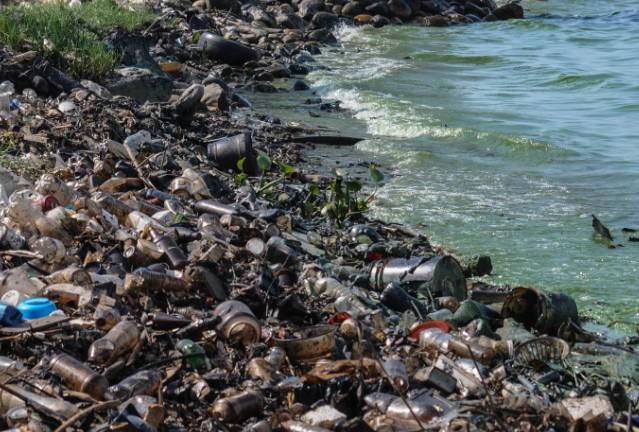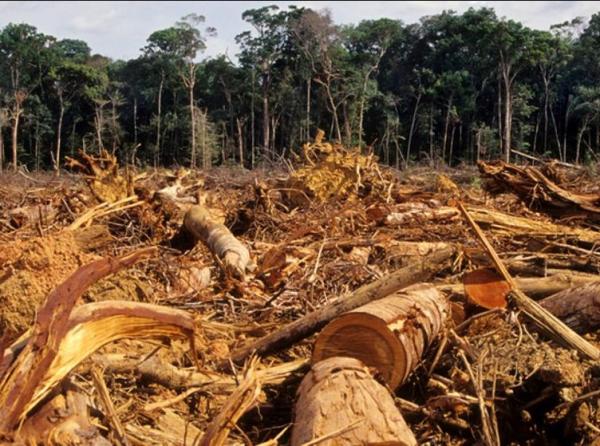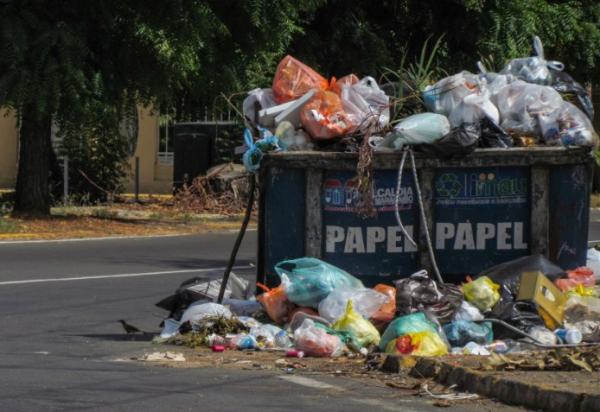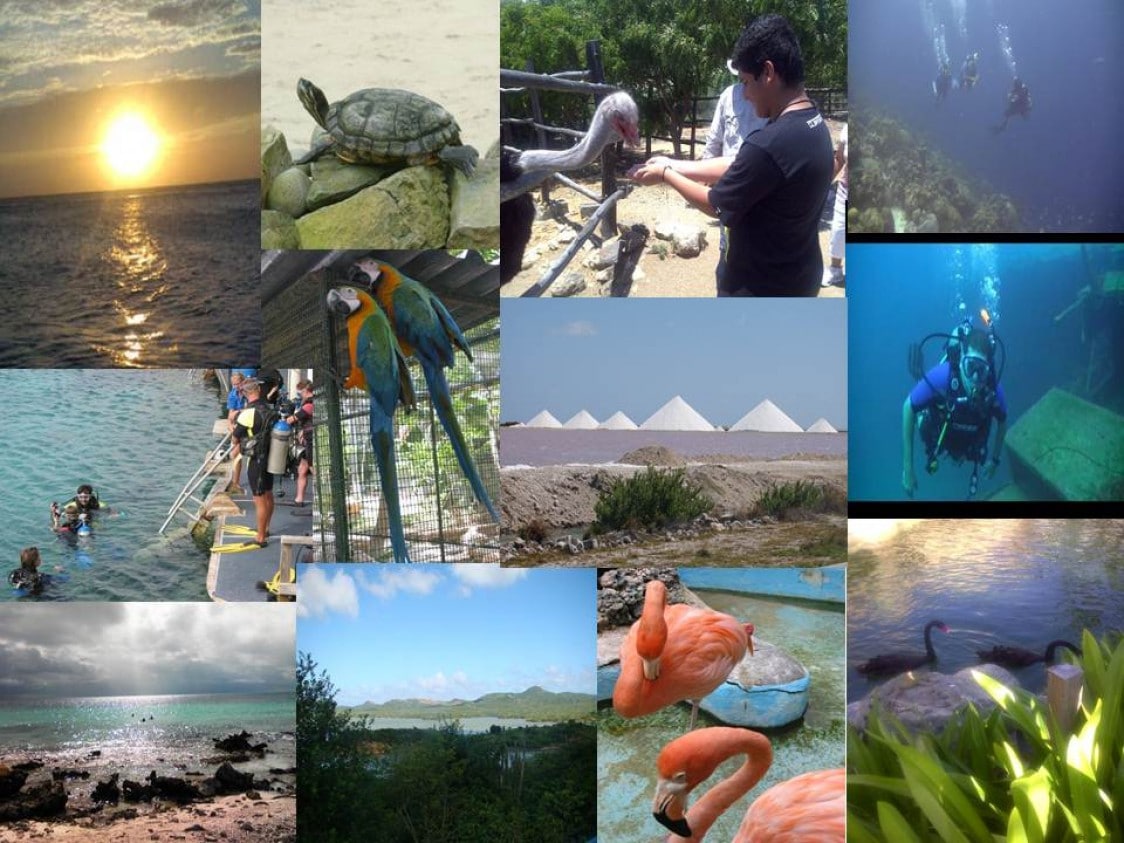Venezuela represents one of the countries with the greatest natural wealth, which has represented the great advance of the country, promoting development and progress in the nation. Due to all the benefits that the country has, an environmental impact has been generated due to the techniques of obtaining them, let us know in the following article the Environmental Problems in Venezuela.

Environmental Problems in Venezuela
The environment corresponds to one of the topics of discussion worldwide, mainly due to the negative impact that the manipulation and intervention of man in their transformation has had on natural resources, leading to overexploitation and high consumption to the point of generating a total deterioration, for which each country has generated regulations and legislation that allow control of natural resources within each nation, with all of this, environmental problems have been observed that still persist.
Venezuela is a very prominent country and known worldwide for its great variety of ecosystems that make up its natural environment. The country stands out for becoming an area that has 912.050 square kilometers, this area is made up of beaches, deserts, mountains, valleys, plains, coasts, among others. Making a nation rich in natural resources and products housed in it.
It highlights the fact that due to its great variety of resources it has presented political problems, due to foreign forces wanting to exploit them. Emphasizing mainly those from energy sources such as oil or mining resources such as gold; without counting the exploitation of its forests that have a great biodiversity of fauna and flora that have been seriously affected in recent years.
There are a wide variety of causes that generate the continuous environmental problem in the Venezuelan country, where the overpopulation of the nation, non-compliance with environmental laws, the over-exploitation of natural resources and the excessive increase in industries stand out. All this leads to the contamination of different areas but being seriously affected by water and air pollution being observed in different parts of the region, in addition to observing an accumulation of solid waste in rural areas that leads to soil degradation. and deforestation.
In addition to the occurrence of forest fires that have caused the massive disappearance of tree species throughout the country, also affecting visual and noise pollution, destroying the landscape areas of the country, among many other factors that have generated national and international confrontations throughout the country. weather. Due to this, a set of policies focused on the protection and preservation of the environment have been created to achieve the maintenance of the environment and ensure it for future generations.

Water Pollution in Venezuela
Water is considered a vital liquid for the development of life on the planet. Venezuela is one of the very few countries that has natural sources of drinking water, as well as rivers and seas that make up its landscapes. Standing out for becoming one of the main areas that are affected at different levels both on the coasts, in rivers, in lakes, lagoons and also in other water sources, becoming of great concern the affectation of these ecosystems. .
The main cause of water pollution in the Venezuelan country is attributed to companies and different homes in urban areas of the country. In this house, the oil company in charge of processing hydrocarbons stands out, where its processes are usually carried out in the sea, reaching oil spills on the Venezuelan coast. Highlighting in this case the oil spills presented on the coast of the Gulf of Venezuela, as well as presented on the coast of Falcón produced by the petrochemical industry located on its beaches.
In addition, highlighting the fact that the oil company is one of the causes of the high number of industrial waste present in the bodies of water, contaminating the fresh water of the rivers and even reservoirs of drinking water, this has been observed in Lake from Maracaibo, where there is a large accumulation of waste that has polluted the waters of the lake.
Highlighting other factors that influence water pollution such as the presence of pipeline explosions that come from the Colombian guerrilla that have affected the Venezuelan rivers near the Orinoco River. As it can also affect tourists who visit the coastal areas of the country, leaving a large accumulation of waste such as plastic and glass containers on the shores of beaches and rivers.
According to the statistical studies of the contamination of the bodies of water in the country, the Guaire and the Tuy river stand out in the capital of the country, as well as the Valencia lake, the Tocuyo and Aroa rivers, together with all its tributary rivers in the western areas. While the river Neverí, Unare, Manzanares and Guarapiche in the eastern section.

Air Pollution in Venezuela
The air represents the entire gaseous layer that is around the planet earth, it is so wide and extensive that it can be classified by levels until it generates a protective layer known as the ozone layer, through it all living beings can have contact with the oxygen that comes from plants and allows the development of life.
Currently there is a large amount of gaseous emissions from the industries that are found throughout the Venezuelan country, these companies are mainly located in the capital region of the country and the central section, having a great impact on the air of said sectors and harming the environment. of all country.
Because the companies represent a great economic advance for the country, no measures are taken to control the number of toxic gas emissions to counteract the problem. In this case, the oil and petrochemical industries stand out, mainly those located in the cities of Valencia, Maracaibo, Puerto Ordaz and Caracas, where the environmental impact on the atmospheric layer has been much more drastic.
In addition to this, there is a wide variety of vehicles that are responsible for making a large emission of gases that are deposited in the atmospheric layer, this being a factor that increases progressively due to the fact that it is affected by individual vehicles and by public transport that circulate daily throughout the country, in addition to those vehicles that have a bad exhaust system are usually much more polluting than in regular situations. This factor is much greater in those highly populated urban cities found in the capital and central region, where a large layer of smog is observed.
Accumulation of Garbage or Solid Waste
Garbage is one of the main problems that all countries deal with and being one of the biggest concerns for future generations. In Venezuela it represents great problems due to failures in the collection of garbage that comes from homes and industries, being accumulated and affecting the local environment of each city.
Emphasizing that all the cities of the country each year present a great accumulation of tons of garbage, increasing due to the effect of atmospheric and visual pollution, being a much greater factor in those regions that are tourist and visited by foreigners, which generate a greater amount of waste and harm local communities.
Despite this, Venezuela represents a country that is excessively populated, so the amount of solid waste does not represent a critical figure. The problem is that there are no solid waste treatment plants in the country, either for disposal or recycling. There are only sanitary landfills authorized for some companies in the regions of the country.
Counting only the garbage dumps or garbage deposits that are in the open that are overcrowded, at their maximum limit and most of them are already exhausted. Due to legislative failures to control waste, they are often illegally deposited in green areas, affecting the country's landscape and contaminating water, soil and air, even becoming one of the causes of fires. in some sectors.
The fact that there is no adequate management of solid waste is highlighted, nor is there an environmental culture, which leads to little planning to promote ideas for maintenance and cleaning of the cities and affected areas.
Deforestation and Forest Fires in Venezuela
Venezuela has been characterized by presenting a great variety of ecosystems such as forests, jungles and mountains, where most of them are protected as national parks and reservoirs of flora and fauna, despite this they have been exposed to the destruction of its tree species present, being considered a very delicate environmental problem for the country.

During times of drought in the country corresponds to those summer months, where temperatures are higher and rainfall is very scarce, it is possible to observe the presence of forest fires that have come to destroy thousands of hectares of natural forests that, together with this, collaborate with air pollution. Altering the environment and all the ecosystems in which they usually originate. High temperatures cause this type of fire, where dry foliage and solid waste often act as catalysts for these fires.
A second factor that influences the destruction of tree species present in the country is attributed to oil exploitation and the mining industry. Due to the fact that massive extensions of trees are observed in the country, they can cause the excessive felling of the species, until they are completely and irreversibly destroyed. Massive deforestation is observed in agricultural or urban areas, mainly in the states of Bolívar and Amazonas, due to their great natural and mineral wealth.
Soil Pollution in Venezuela
Venezuela is characterized by its natural riches, among them its variety of soils suitable for agricultural production located in different parts of the Venezuelan regions such as the plains, in the western section and in the Andean region. These territories have stood out for becoming fertile soils, being one of the most sought after for agricultural purposes.
Over time, some soil degradation has been observed due to the high presence of agricultural pollutants such as pesticides, herbicides and fertilizers. Where they represent a set of chemical substances that have come to deteriorate the soil, to the point of making them lose their natural properties by not allowing them to regenerate properly, to the point of leaving them unusable and even sterile, not allowing them to be used again in the future. .
In addition, due to the presence of these chemical factors to which soils and plants are subjected, pests tend to proliferate and invade crops, where farmers tend to use much stronger chemicals and the impact on Venezuelan soils is greater. Causing there to be an acceleration of soil degradation and collaborating with environmental impact, bringing great consequences, due to the decrease in consumption income in the country and the contamination of waters.

Currently there is an indiscriminate use of chemical products by farmers, becoming applied as an intensive method for planting in the country. Where they come to generate a high environmental impact in the Venezuelan regions and generate new sources of pollution that affect the nation.
Illegal Mining in Venezuela
Venezuela is characterized by becoming a country rich in different natural resources but also for being rich in minerals and precious stones such as gold and coltan. In the same way that a large percentage of deforestation carried out by man is observed, illegal mining is also presented, which corresponds to the massive and illegal extraction of the country's mineral resources for non-profitable purposes for the nation.
Deforestation can become a consequence of illegal mining, highlighting in this case the effects in the southern region of the country. This represents a great political and environmental problem, because they are usually an army of people who come from neighboring countries to extract the mineral wealth of the nation illegally, among some of the most extracted minerals are diamonds, gold, coltan, among others.
The mining exploitation represents an act of violence in the Venezuelan territories that are controlled by the mafias, where approximately 14,7 tons are extracted. This type of fact is widely observed in the Amazon where there is a large amount of mining exploitation where they carry out the massive destruction of plant species, during the process they contaminate nearby bodies of water.
This type of practice can be carried out legally or illegally, in both cases a violent form is generated against the environment that generates irreparable consequences in the area.

Wildlife Trafficking – Endangered Plants and Animals
Other environmental problems observed in the country is the trafficking of animal species such as exotic birds and mammals found in forests and jungles, most of which are species that are threatened with extinction, generating an impact on the wild ecosystem. Where the species are usually hunted and extracted from their natural habitats to be used for commercial purposes.
Producing an excessive hunting of the exotic species of the Venezuelan ecosystem, carrying out this act illegally and generating an impact on the wild ecosystem and generating a constant danger, bringing as a consequence that many species cannot reproduce again and They usually die in captivity. Added to this is the factor of deforestation and environmental pollution that harms the habitat of these species.
Visual contamination
Pollution can become very prominent such as the affectation of bodies of water, affectation of the air and degradation of soils, there is also a much quieter type of contamination such as visual, becoming a factor that influences the landscape of cities and the environment due to the excess of urbanizations that have been growing and altering the visual appearance of the entire environment.
Sanitary landfills or sewers are found closed or completely saturated with garbage, it can motivate people to dispose of their garbage or waste is usually deposited in green areas, generating a set of policies to maintain waste management solids. Through these regulations, controls are established on the advertising that is found throughout the city and located on the walls, wall decorations with billboards and pamphlets.
Noise pollution
Another type of camouflaged pollution is excessive noise, where citizens are used to this type of environment. The lack of regulation or standards that control excess noise, mainly in cities, contributes to the country's environmental problems. The noise of the horns of vehicles, noise from industrial areas and even from homes that are within urban areas.
We hope this article has been helpful, we leave you others that will surely interest you:
The Importance of Environmental Education